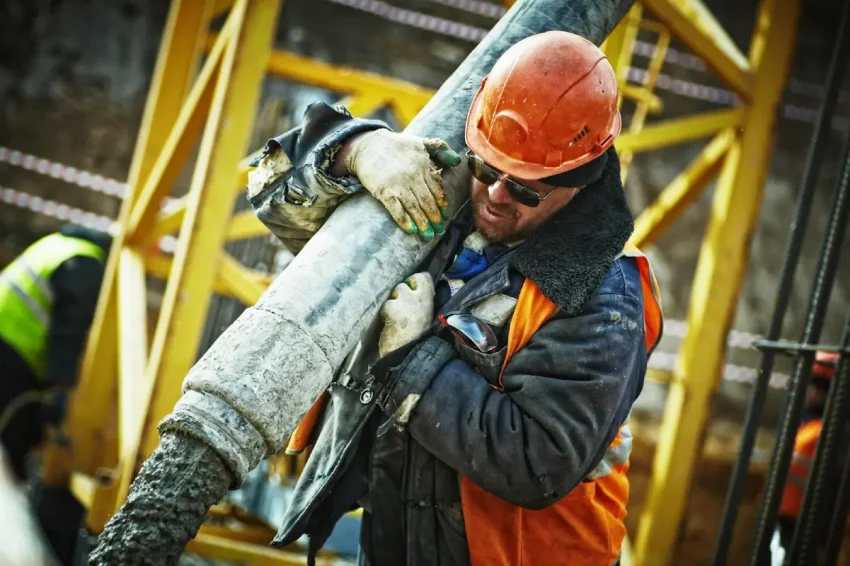The Role of Construction Attorneys in Project Risk Management

The intricate nature of construction projects introduces numerous risks that can undermine their successful completion.
Labor shortages combined with regulatory compliance challenges create multiplying risks that jeopardize successful project completion.
Construction attorneys operate as essential protectors to prevent legal and financial disasters from disrupting even the best-designed projects.
Contents
- 1 Why Construction Attorneys Are Essential in Today’s Building Landscape
- 2 Key Risk Management Functions of Construction Attorneys
- 3 How Attorneys Navigate Workforce Challenges in Construction
- 4 The Economic Context: How Attorneys Adapt to Market Conditions
- 5 Technology Integration: Legal Guidance in the Digital Construction Era
- 6 When to Bring a Construction Attorney into Your Project
- 7 Wrapping Up: The Value Proposition of Construction Attorneys
What You’ll Discover Inside
- Why Construction Attorneys Are Essential in Today’s Building Landscape
- Key Risk Management Functions of Construction Attorneys
- How Attorneys Navigate Workforce Challenges in Construction
- The Economic Context: How Attorneys Adapt to Market Conditions
- Technology Integration: Legal Guidance in the Digital Construction Era
- When to Bring a Construction Attorney into Your Project
Why Construction Attorneys Are Essential in Today’s Building Landscape
The vital role of construction attorneys becomes crucial due to severe labor shortages combined with increasingly complex regulatory frameworks.
Construction lawyers work proactively to stop issues from developing instead of only fixing them when they happen. Through their construction law expertise these professionals can detect upcoming problems which prevent expensive disputes and time-consuming delays from developing.
Working with an experienced attorney in St. Louis or other metropolitan areas gives construction companies access to specialized legal knowledge that can make the difference between project success and failure. Construction attorneys at firms like D.M. Duree Law deliver essential legal advice to construction companies nationwide. Construction companies throughout the country now view Duree Law as an essential element of their risk management strategies.
Key Risk Management Functions of Construction Attorneys
Construction lawyers execute numerous essential functions to help manage project risks.
Contract Development and Review
The contract stands as the most essential instrument for managing risks in construction projects. Construction attorneys create and examine contracts which protect their clients’ interests by using:
- Clear scope definitions that prevent scope creep
- Appropriate risk allocation between parties
- Well-defined dispute resolution procedures
- Payment terms that protect cash flow
- Force majeure clauses that address unforeseen circumstances
Construction regulation presents a complex environment that undergoes continuous change. Construction attorneys help clients navigate:
- Building code requirements
- Environmental regulations
- Workplace safety laws (OSHA)
- Licensing requirements
- Accessibility standards (ADA)
Dispute Prevention and Resolution
During inevitable conflicts construction attorneys deliver strategic guidance on:
- Negotiation strategies for early dispute resolution
- Mediation and arbitration proceedings
- Litigation when necessary
- Lien management and resolution
- Insurance claim assistance
Construction sector employers are currently struggling with a major shortage of workers. Industry data reveals the U.S. construction sector will need to recruit more than 500,000 new workers by 2025 to manage critical workforce shortages. The workforce crisis intensifies as nearly one-fifth of construction workers are now 55 years old and near retirement.
Lawyers who specialize in the construction field assist companies with their workforce issues by:
Legal Strategies for Labor Shortages
- The creation of contracts must incorporate provisions to handle potential labor shortages.
- Creating flexible scheduling provisions
- Developing contingency plans for workforce disruptions
- Attorneys help construction companies maintain legal compliance while optimizing workforce productivity.
Immigration Compliance
Since construction companies depend heavily on immigrant workers, attorneys provide guidance for:
- Work authorization verification
- Visa requirements for specialized workers
- Compliance with changing immigration policies
- Protection against penalties for non-compliance
Training and Apprenticeship Programs
Construction lawyers provide support to create training programs that fulfill legal standards by:
- Ensuring apprenticeship programs meet state requirements
- Attorneys create agreements to safeguard company investments when workers receive training.
- Develop retention incentives which adhere strictly to labor law requirements
- Establishing partnerships with educational institutions
The Economic Context: How Attorneys Adapt to Market Conditions
The economic landscape significantly impacts construction projects. The expectation of reduced interest rates and decreased inflation in 2025 will produce advantageous conditions for commercial and public projects according to industry forecasts. These economic changes generate additional legal complications.
Construction attorneys support clients in navigating economic fluctuations by providing targeted legal advice.
Financing Structure Guidance
- Advising on project financing options
- Structuring joint ventures to distribute risk
- Reviewing lending agreements
- Ensuring compliance with financial regulations
Contract Adjustment Strategies
- Developing escalation clauses for material costs
- The development of milestone payment plans that change based on prevailing economic indicators
- Formulating change order procedures which incorporate economic fluctuations
- Develop force majeure clauses to cover economic disruptions
Attorneys guide clients through the distinctive elements of public projects when economic conditions create favorable opportunities.
- Public procurement requirements
- Compliance with government contracting regulations
- Bond and security requirements
- Specialized dispute resolution procedures for public entities
Technology Integration: Legal Guidance in the Digital Construction Era
The construction industry evolves through technology as AI integration expands to enhance safety measures while optimizing resources and improving quality control. The digital transformation brings legal complexities which construction attorneys are specially equipped to manage.
Data Rights and Privacy
Construction attorneys help clients navigate:
- Ownership of project data
- Privacy concerns with worker monitoring technology
- Intellectual property rights in digital designs
- Data security and breach response planning
AI and Automation Legal Frameworks
Attorneys offer their expertise when construction sites begin implementing AI and automated systems.
- Liability allocation for AI-guided decisions
- Contract provisions addressing automated systems
- Regulatory compliance for new technologies
- Insurance coverage for technology-related risks
BIM and Digital Twin Legal Issues
Attorneys work to resolve legal questions that Building Information Modeling (BIM) and digital twins introduce.
- Model ownership and licensing
- Standard of care for digital model accuracy
- Data transfer and preservation requirements
- Interoperability requirements and liability
When to Bring a Construction Attorney into Your Project
Construction attorneys participate from the beginning of projects which leads to the highest success rates. Proactive legal counsel acts protectively to stop problems from occurring unlike companies that only respond when issues manifest.
Pre-Construction Phase
Involve attorneys during:
- Initial project planning
- Contract development
- Team assembly and subcontractor selection
- Insurance and bonding arrangements
- Land acquisition and zoning matters
During Construction
Regular attorney consultation during construction helps with:
- Change order management
- Payment disputes
- Schedule delay issues
- Safety incident response
- Quality control concerns
Project Closeout
Construction attorneys serve as essential partners during the project completion phase because they handle final payment negotiations and establish warranty programs.
- Final payment negotiations
- Warranty program establishment
- As-built documentation review
- Lien release confirmation
- Project acceptance documentation
Wrapping Up: The Value Proposition of Construction Attorneys
Specialized construction attorneys play far-reaching roles that surpass mere dispute resolution in the current construction sector landscape. These professionals serve as strategic partners who guide companies through the complex legal and economic framework as well as technological advances in modern construction.
Construction attorneys serve as key risk managers for workforce shortages while leading companies through economic changes and technological advancements in construction. Construction companies achieve better project results and improve financial performance by leveraging construction attorneys to convert potential threats into manageable challenges.
When construction attorneys become part of your risk management system you gain not just legal representation but also secure long-term project achievements and business resilience in today’s multifaceted construction environment.



